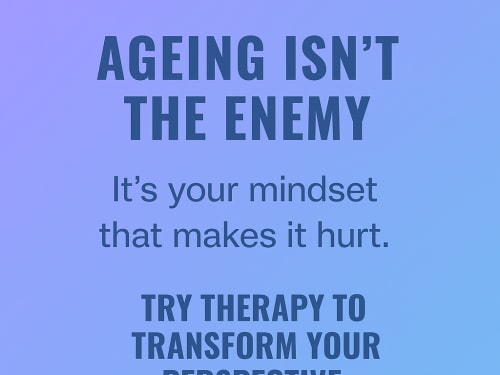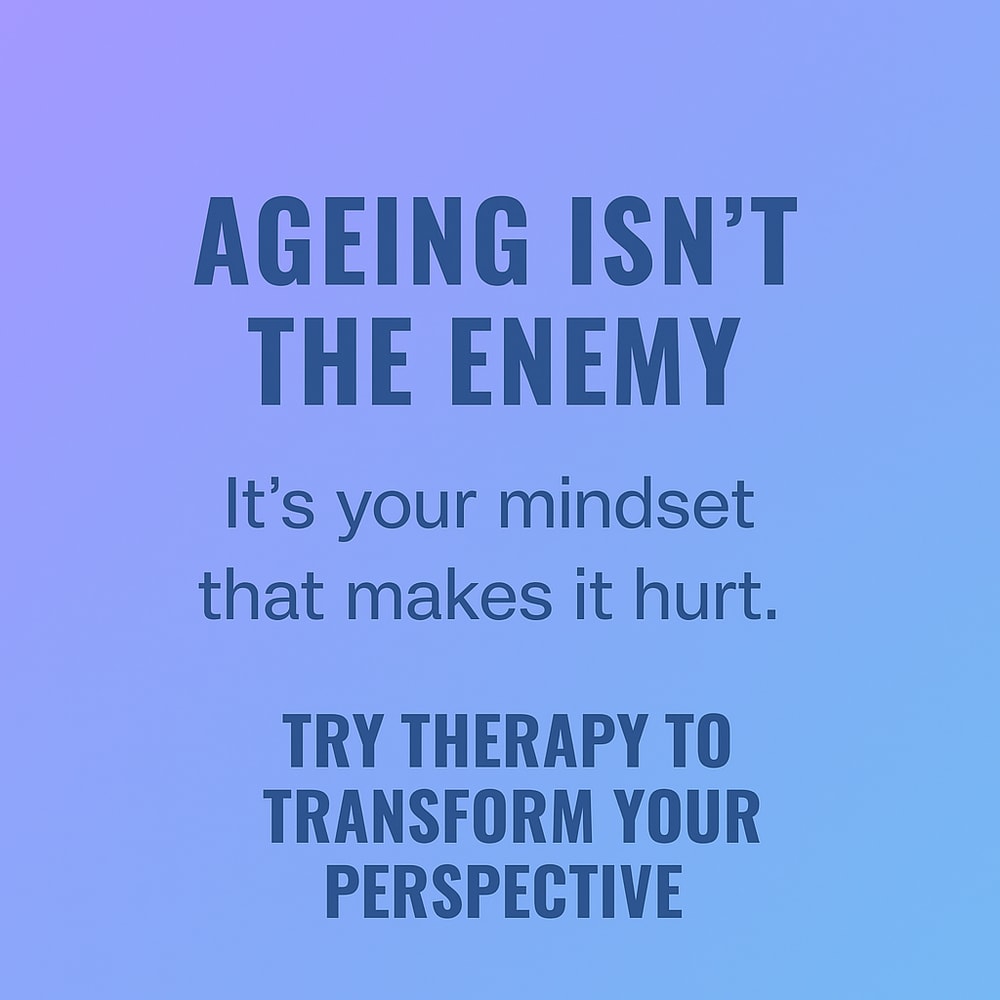The Psychology of Ageing

posted 22nd July 2025

The Psychology of Ageing: Why It's Not Ageing That Hurts, But How You See It
Ageing is inevitable, but the emotional response to it varies hugely from one person to another. Some people glide into midlife and later years with grace, humour, and perspective. Others find the process deeply distressing — experiencing sadness, irritability, anxiety, or a sense of loss. Why does this happen? And what can we do to change the way we feel?
Psychologically speaking, it’s not the act of ageing itself that causes distress, but the narrative we attach to it. Ageing triggers a confrontation with change: physical, social, existential. Wrinkles, grey hair, weight gain, slower metabolism — these are real and visible. But what truly unsettles many people is the belief that they are becoming less relevant, less attractive, or less valuable. And this belief, not the body itself, is what leads to despair.
Personality and Ageing: Who Struggles Most?
Interestingly, it’s not always the people you’d expect who cope best. Those with a flexible, open mindset, a sense of humour, and deep-rooted self-worth often find ways to adapt. They don’t cling too tightly to youth as an identity. Instead, they focus on values, relationships, and meaning — and in doing so, discover a kind of psychological freedom.
People who have always relied on external validation — compliments, appearance, achievements — may find ageing more threatening. If your self-esteem was fragile in your teens or twenties, age won’t heal that. In fact, it can intensify insecurities that have always been present. Even as a teenager, you may not have felt beautiful, glamorous, or confident, yet now you look back and think: I wish I had appreciated myself more.
This is a revealing truth: the people most distressed by ageing are often those who’ve never felt “enough” to begin with. If you were hard on yourself in your youth, you’re likely to continue that pattern — just with new targets (lines, grey hair, tiredness, career stagnation). Becoming younger wouldn’t change your internal narrative. You’d simply find new things to dislike.
Why Age Feels Emotionally Difficult
Men and women tend to experience the emotional toll of ageing at different points. For women, mid to late 30s and early 50s can be especially confronting — these are ages where societal beauty standards and hormonal shifts (such as perimenopause) can collide. Men may struggle in their late 40s to early 60s, particularly when career identity, physical strength, or sexual vitality starts to decline. The emotional experience is not just physical — it’s often about loss of control, status, or purpose.
It’s also common for people to experience low mood, even depressive symptoms, in earlier adulthood — your mid-20s and 30s — because of the gap between expectation and reality. This can resurface again in midlife as you reevaluate life goals, ageing parents, or unfulfilled dreams.
How to Emotionally Cope With Ageing
The real work lies in changing the way you think about ageing. Try reframing it the way you once saw childhood competitions: what can I win at now? What new skills can I develop? What wisdom have I earned?
Don’t compare yourself to a version of you that never felt good enough at the time anyway. Youth is often romanticised — but how many of us genuinely felt secure and happy in our younger years? The truth is, ageing doesn’t create insecurity — it simply exposes and exaggerates the ones we’ve never resolved.
This is why therapy can be so powerful. Working with a psychologist can help you confront the internal beliefs that keep you stuck — the “not good enough” scripts, the perfectionism, the fear of invisibility. You can begin to reshape your sense of worth, not around how you look or how young you seem, but around how you live.
Focus On What You Can Control
You can’t change your age, but you can influence your health, mindset, lifestyle, and habits. A walk outdoors, a balanced diet, meaningful connection — these are not cosmetic, but they are deeply restorative. Focus on strength rather than size, on presence rather than perfection.
If appearance still feels important to you (and for many people it does), it’s OK to care — but make sure it’s in service of self-care, not self-criticism. Aim to feel good, not to erase time.
Ageing is not a failure — it’s an achievement. If you’re struggling, know this: your pain is valid, but it’s also something that can be transformed. What you need is not more youth, but more compassion. Not more collagen, but more connection. You are not losing yourself — you are growing into a new version of you. And that version deserves kindness, respect, and joy.
Because in the end, the mirror reflects only your outer shell. The work lies in changing what’s inside — not to become someone else, but to finally feel at home with who you are.
While it is entirely natural to experience moments of nostalgia, regret, or self-reflection as you age, these thoughts should not consume your daily life or lead to persistent emotional distress. If you find that negative feelings about aging are affecting your mood, relationships, self-worth, or ability to function day to day—particularly if you are experiencing symptoms of depression, hopelessness, or suicidal thoughts—it is important to seek professional support. Aging does not need to feel like a decline, but when it begins to feel like an emotional burden that you cannot shake, therapy can offer a safe and compassionate space to explore these feelings, reframe your perspective, and build a healthier relationship with yourself and your evolving identity. No one should suffer in silence; help is available, and it can make a profound difference.



